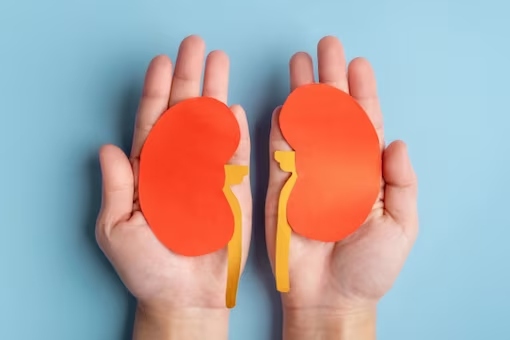After selflessly donating a kidney, ensuring a healthy life is paramount. While the body adapts remarkably to a single kidney, careful lifestyle choices are crucial. This new chapter demands attention to hydration, maintaining a balanced diet, and regular exercise to support the remaining kidney’s optimal function. Close medical monitoring, avoiding excessive alcohol and certain medications, and periodic check-ups help safeguard your health, allowing you to thrive as both a donor and recipient of the gift of life.
WHO IS ELIGIBLE FOR A KIDNEY TRANSPLANT?
The eligibility for a kidney transplant depends on various factors. Individuals with End-Stage Renal Disease (ESRD), which leads to irreversible kidney failure and often necessitates dialysis, are prime candidates. Generally, patients aged 65 or younger are considered, provided they are in good overall health. The absence of active infections or certain types of cancer is crucial for eligibility. Additionally, a psychological evaluation is also conducted to ensure the patient can handle the physical and emotional aspects of the transplantation process. A strong support system is also essential for post-transplant care. Living donor kidney transplants are common in India due to the scarcity of deceased donor organs. Furthermore, these guidelines, along with India’s diverse population and healthcare resources, influence eligibility criteria in the country.
WHAT ARE THE KINDS OF KIDNEY TRANSPLANT THAT A PATIENT CAN UNDERGO?
There are primarily two types of kidney transplants: deceased donor kidney transplants and living donor kidney transplants. Deceased donor transplants involve receiving a kidney from an individual who has donated their organs after death. Due to organ shortages in India, deceased donor transplants are relatively limited, however with increased awareness campaigns at local and national levels organ donations have seen a considerable rise in India. In contrast, living donor kidney transplants are more prevalent. In this type, a kidney is donated by a living family member, spouse who is a compatible match. This approach ensures a more timely and controlled process, and it’s subject to stringent ethical considerations to protect the donor’s health and rights. Most kidney transplants in India are of the living donor type.
HOW LONG IS THE POST RECOVERY PERIOD FOR A KIDNEY TRANSPLANT PATIENT?
The post-recovery period for a kidney transplant patient in India can vary based on various factors such as age, overall health, the type of transplant, and any complications. Typically, patients stay in the hospital for approximately 7 to 10 days after the surgery. However, full recovery and the return to normal activities may take several weeks to a few months. The patient’s dedication to following the medical team’s instructions, which includes regular follow-up visits, adherence to medications, and monitoring kidney function, significantly influences the recovery timeline. India’s healthcare infrastructure, with its specialized transplant centres, plays a crucial role in supporting patients during this critical phase.
WHAT ARE THE INITIAL STEPS INVOLVED IN RECOVERING FROM A KIDNEY TRANSPLANT – MEDICATION, DIET, EXERCISE, WATER INTAKE?
The initial steps in recovering from a kidney transplant in India encompass several essential aspects to ensure the success of the transplant. Medication is a fundamental component, as patients need to take immunosuppressive drugs to prevent rejection of the new kidney therefore, adhering to the prescribed medication regimen is vital. Additionally, maintaining a balanced and healthy diet is also crucial. Patients often receive dietary guidelines to manage salt intake, fluid balance, and levels of potassium and phosphorus. In addition to that, gradual re-introduction of exercise, under the guidance of the medical team, supports overall recovery, however it’s essential to proceed with caution during the initial phase. Adequate water intake is important for kidney function, although the amount may be adjusted based on individual needs, kidney function, and any fluid restrictions provided by the medical team.
SOME DOS AND DON’TS AFTER A KIDNEY TRANSPLANT THAT PEOPLE SHOULD BE AWARE OF
After a kidney transplant, understanding the do’s and don’ts are crucial for the long-term success of the transplant. Patients should diligently follow medical advice, including taking medications as prescribed, attending follow-up appointments, and adhering to lifestyle changes. It’s essential to maintain a healthy lifestyle by consuming a balanced diet, engaging in regular physical activity (as advised), and refraining from smoking or excessive alcohol consumption. Staying hydrated is crucial, however the amount of water intake may need to be adjusted based on kidney function and any fluid restrictions provided by the medical team. Importantly, patients should be vigilant about any symptoms, such as fever, pain, swelling, or changes in urine output, and promptly seek medical attention when necessary. Regular follow-up with the transplant team is essential to detect and address potential issues early on.
IS RECOVERY A LIFELONG PROCESS?
Yes, recovery is indeed a lifelong process after a kidney transplant. The initial recovery period focuses on immediate healing and adaptation to the new kidney. However, long-term care and monitoring are essential to ensure the continued health of the transplanted kidney and the patient’s overall well-being. Regular follow-up visits with the transplant team are crucial for monitoring kidney function, adjusting medications, and addressing any potential complications. Lifelong use of immunosuppressive medications is typically required to prevent rejection of the transplanted kidney. Maintaining a healthy lifestyle, including a balanced diet, regular exercise, and avoiding risky behaviours, is essential to minimize the risk of complications and maintain good kidney health. Transplant recipients need to be proactive in monitoring their health, reporting any concerning symptoms, and staying informed about advancements in kidney transplant care to ensure a successful, lifelong recovery.
Emotional health of the recipient goes a long way in ensuring good transplant outcomes. Good emotional health along with strong family support, financial stability, safe and conductive environment etc. are important for achieving safe transplant goals.


